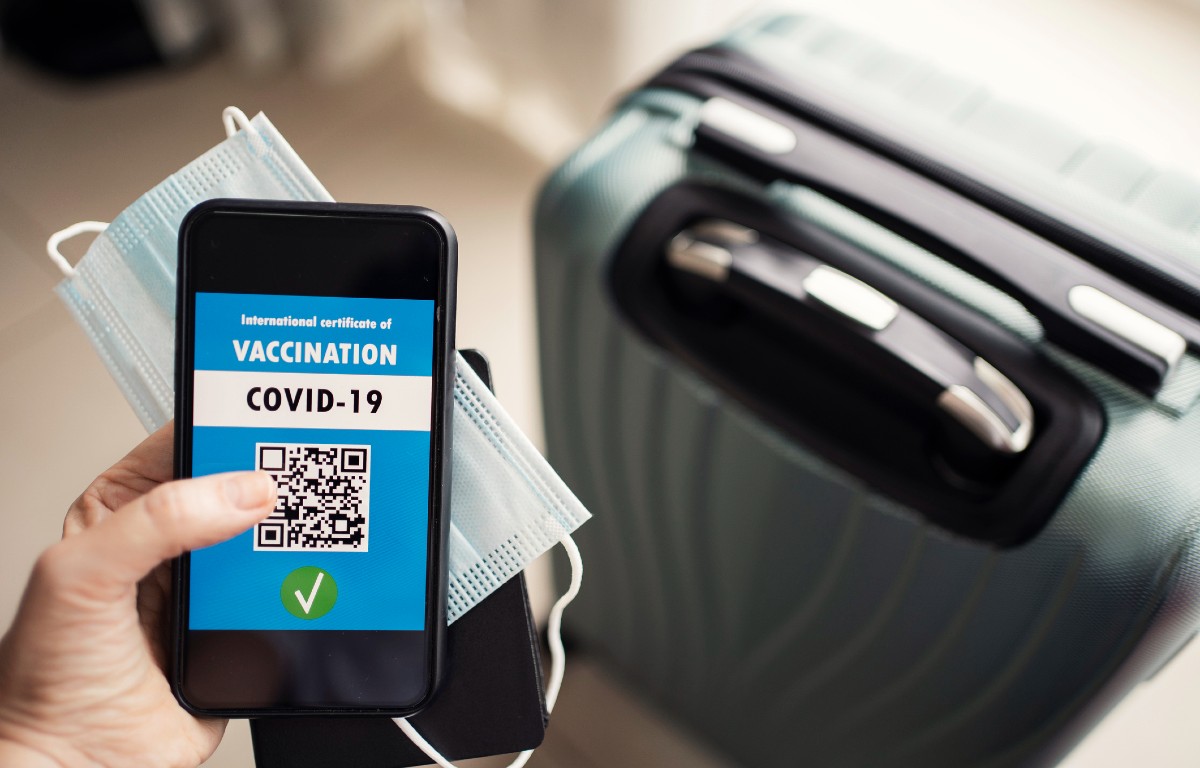 The number and scope of COVID-19 “passports” and certificates are increasing. The purpose of these emerging digital documents is to certify that the holder has been fully vaccinated with one of the COVID-19 vaccines currently approved for emergency use by drug regulatory agencies such as the U.S. Food and Drug Administration and the European Medical Agency. The existence of such documents has raised ethical questions regarding privacy, individual liberty, and equity.
The number and scope of COVID-19 “passports” and certificates are increasing. The purpose of these emerging digital documents is to certify that the holder has been fully vaccinated with one of the COVID-19 vaccines currently approved for emergency use by drug regulatory agencies such as the U.S. Food and Drug Administration and the European Medical Agency. The existence of such documents has raised ethical questions regarding privacy, individual liberty, and equity.
Vaccination Certificates, Apps, and Fraud
The first official vaccination certificate in the United States was the paper card distributed by the U.S. Centers for Disease Control and Prevention (CDC) and completed at the site where the vaccine was administered. Soon after that, digital certificates issued by private organizations began to appear. With its digital Excelsior Pass, designed by IBM, New York was the first state government in the U.S. to make a vaccine certificate available for its residents. Internationally, Israel was the first country to issue a governmental document, the Green Pass, which appeared on February 21 this year.
Since then, an array of private and nonprofit companies and agencies has been preparing digital passes that have specific or general uses, including access to restaurants, sporting events, concerts, and other venues. Issuing organizations include the International Air Transport Association, which represents 290 airlines around the world and developed the Travel Pass app. Another is the Commons Project, a nonprofit trust dedicated to using technology to help people control their personal information, which created the commonpass app. And the European Union’s EU Digital COVID Certificate will be ready for use by the EU’s 27 member states by July 1.
Soon after the CDC issued its official card with proof of vaccination status, false documents began to appear for sale on the web. Among the purchasers of these forgeries or falsified copies are people opposed to receiving the COVID vaccine—so-called anti-vaxxers. Members of antivaccine groups who post on Facebook have boasted about getting the cards. With the emergence of digital apps, it will be only slightly more difficult for dishonest entrepreneurs to peddle their wares, since falsified apps for various purposes are already widespread.
Documentation Driving Division
Since the pandemic emerged, a sharp divide has existed between adherents of cautious behavior, such as wearing masks and social distancing, and detractors who refuse to wear masks and have often participated in large indoor gatherings and crowded outdoor events. In the United States, the debate over vaccine certificates has created a new source of conflict between Republicans and Democrats, both among political leaders and throughout the general public. Georgia, Alabama, Arizona, and Florida—all states where political offices are controlled by Republicans—have already banned the use of vaccine certificates. In Democrat-dominated New York State, elected officials are considering expanding the features of the current Excelsior Pass. The ethical arguments of those in favor and those opposed to vaccine certificates have several dimensions.
Arguments in favor of vaccine certification cite its importance as a public health measure that could reduce the spread of COVID-19 infection. For example, requiring health workers to have certificates reduces the possibility of infecting unvaccinated patients with whom they come in contact. The same is true for those places where the virus has spread easily, such as universities, gyms, and assembly lines.
The most prominent objection to allowing vaccine certificates is that they interfere with individual liberty. Many people object to restrictive measures that limit their personal freedom. While a subgroup is vocally opposed to vaccinations—although not the “anti-vaxxers” who gleefully acquired the fake certificates available on the Internet—not all are. John Joyce, a Republican member of Congress from Pennsylvania, calls federally mandated vaccine passports “a tyrannical act.” However, Mr. Joyce has already been vaccinated and urges speeding up vaccine distribution in his state.
A second group of objectors considers vaccine certificates an invasion of privacy. They claim the certificates violate their right to privacy concerning their medical information. Although documentation of a preventive vaccine is hardly the same as opening up one’s entire medical record of current and past diagnoses and treatments, those who object to governmental control of any aspect of their lives seize upon medical privacy as an inalienable right.
A third opposition group adheres to a different ethical principle: equitable access. On a global scale, many people who live in low- and middle-income countries have very little, if any, access to COVID-19 vaccines. This means they could not travel across borders if vaccine passports were required for such travel. It is for this reason that the World Health Organization has said it does not support mandatory proof of vaccination for international travel. In the United States, members of minority groups and low-income residents have lower rates of vaccination than wealthier members of the population, and would be denied entry to any public or private institutions that require a certificate. The White House said “there will be no federal vaccinations database and no federal mandate requiring everyone to obtain a single vaccination credential.”
As more places require vaccine certificates for entry and as more digital passes become available online, the battle is likely to heat up. But as more incentives are offered to vaccine-hesitant individuals, acceptance of the passes may increase. Only time will tell.

